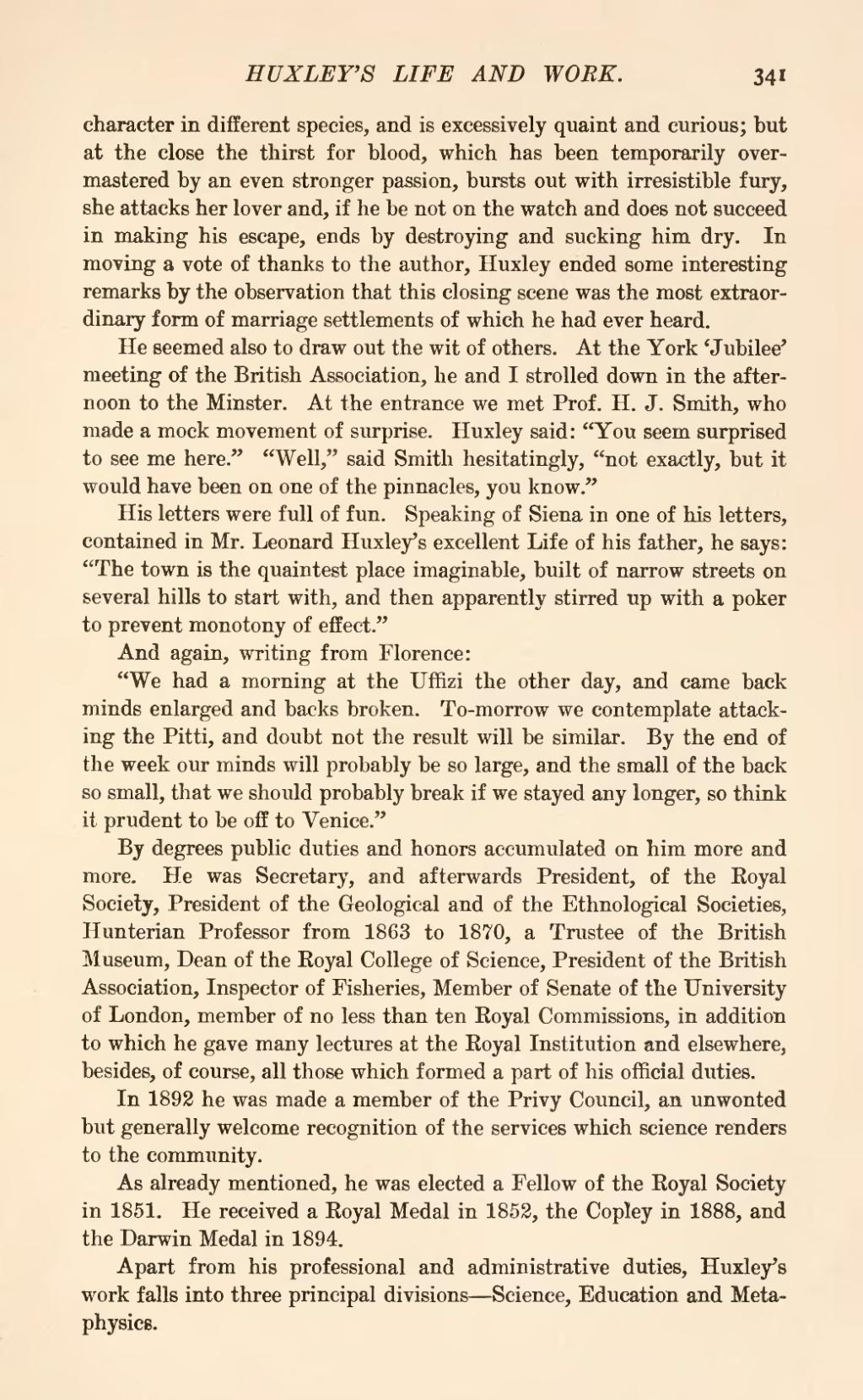character in different species, and is excessively quaint and curious; but at the close the thirst for blood, which has been temporarily overmastered by an even stronger passion, bursts out with irresistible fury, she attacks her lover and, if he be not on the watch and does not succeed in making his escape, ends by destroying and sucking him dry. In moving a vote of thanks to the author, Huxley ended some interesting remarks by the observation that this closing scene was the most extraordinary form of marriage settlements of which he had ever heard.
He seemed also to draw out the wit of others. At the York 'Jubilee' meeting of the British Association, he and I strolled down in the afternoon to the Minster. At the entrance we met Prof. H. J. Smith, who made a mock movement of surprise. Huxley said: "You seem surprised to see me here." "Well," said Smith hesitatingly, "not exactly, but it would have been on one of the pinnacles, you know."
His letters were full of fun. Speaking of Siena in one of his letters, contained in Mr. Leonard Huxley's excellent Life of his father, he says: "The town is the quaintest place imaginable, built of narrow streets on several hills to start with, and then apparently stirred up with a poker to prevent monotony of effect."
And again, writing from Florence:
"We had a morning at the Uffizi the other day, and came back minds enlarged and backs broken. To-morrow we contemplate attacking the Pitti, and doubt not the result will be similar. By the end of the week our minds will probably be so large, and the small of the back so small, that we should probably break if we stayed any longer, so think it prudent to be off to Venice."
By degrees public duties and honors accumulated on him more and more. He was Secretary, and afterwards President, of the Royal Society, President of the Geological and of the Ethnological Societies, Hunterian Professor from 1863 to 1870, a Trustee of the British Museum, Dean of the Royal College of Science, President of the British Association, Inspector of Fisheries, Member of Senate of the University of London, member of no less than ten Royal Commissions, in addition to which he gave many lectures at the Royal Institution and elsewhere, besides, of course, all those which formed a part of his official duties.
In 1892 he was made a member of the Privy Council, an unwonted but generally welcome recognition of the services which science renders to the community.
As already mentioned, he was elected a Fellow of the Royal Society in 1851. He received a Royal Medal in 1852, the Copley in 1888, and the Darwin Medal in 1894.
Apart from his professional and administrative duties, Huxley's work falls into three principal divisions—Science, Education and Metaphysics.

